試す 金 - 無料
One Hundred Years Of... Shadow Dance
Outlook
|October 21, 2025
The RSS and it shadow outfits have lauded Sufi practices and tapped the Muslims in Kashmir but political parties in J&K allege that they are claiming a bogus association with the Valley
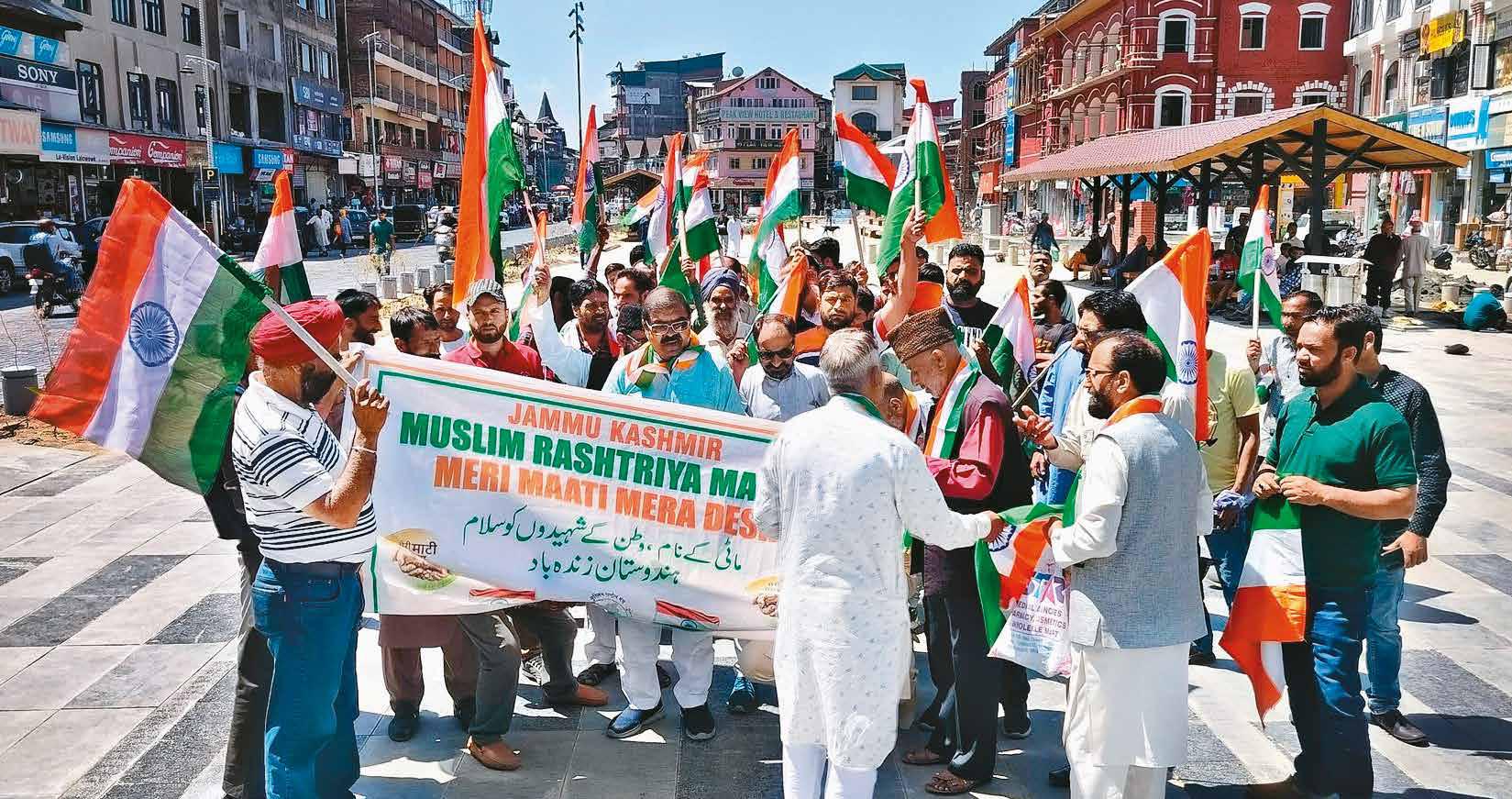
A folded prayer mat and a string of beads rested on a wooden desk in the low-ceilinged hotel room.
On the wall hung a large calendar with an image of Mecca. The room doubled as both office and living space for 54-year-old Mir Nazir, who heads the Muslim Rashtriya Manch (MRM), an affiliate body of the Rashtriya Swayamsevak Sangh (RSS) in Jammu and Kashmir. The room's compound walls are covered with barbed wire, with a scissor gate connected to the concrete stairs and policemen allowing entry only after proper frisking.
Nazir makes it a point to offer his prayers there, while also convening meetings on the need to implement a Uniform Civil Code (UCC).
Since Nazir associated with the MRM in 2002 as its convener for Jammu and Kashmir, the organisation has grown to a strength of over 10,000 members. The RSS, which began its work in J&K in 1939, now runs 690 shakhas in the Union Territory and also has samparks (outreach officials) in every district of Kashmir.
The RSS and its allied organisations launched a movement after 1947 to oppose the separate Constitution and flag for J&K under the slogan 'Ek Nishan, Ek Pradhan, Ek Samvidhan' (One Flag, One Head, One Constitution). After The revocation of Article 370, which did away with the flag of J&K and annulled its Constitution, saffron outfits have reached out by tapping the Muslims in Kashmir and lauding Sufi Islamic practices. Several leaders, including the national executive member of the RSS, Indresh Kumar, have been visiting shrines, while the MRM has also organised iftar parties in mosques to draw more people into their ranks.
But all these measures have been described by parties in Kashmir such as the National Conference (NC) and the Congress as attempts to “hoodwink” people and claim a “bogus association” with the Valley, alleging what they have actually done is “communalise the situation and threaten the Muslims into subjugation.”
このストーリーは、Outlook の October 21, 2025 版からのものです。
Magzter GOLD を購読すると、厳選された何千ものプレミアム記事や、10,000 以上の雑誌や新聞にアクセスできます。
すでに購読者ですか? サインイン
Outlook からのその他のストーリー

Outlook
From Margins to Mainstream The Inclusive Growth Story
Haryana leads the way in welfare reforms with schemes imaginatively redesigned to support the vulnerable — women, students, workers, and the marginalised
4 mins
December 01, 2025
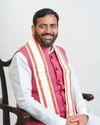
Outlook
One year of Saini Govt. marked by holistic and inclusive governance, social welfare
75 percent of promises kept and worked upon in one-fifth of tenure
4 mins
December 01, 2025
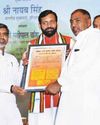
Outlook
Nurturing Urban Dreams on Rural Foundation Haryana's Housing Push Gains Pace
Haryana has redefined housing development with equity at its core. Through 'Housing for All', the state hasn't just built structures, it has rebuilt lives. From makeshift shelters to permanent homes marks a powerful journey on the road to social uplift and inclusive growth
3 mins
December 01, 2025
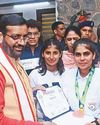
Outlook
Haryana, The Medal Factory, Powering India's Olympic Dreams
Haryana has risen as the undisputed powerhouse of Indian sports, blending grassroots talent, world-class infrastructure, and visionary policies
2 mins
December 01, 2025

Outlook
No Woman's Land
The Left parties, which champion women's representation and empowerment, fielded only one woman among their 33 candidates in the Bihar election
6 mins
December 01, 2025
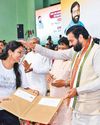
Outlook
Dignity With Jobs Youth Take the Centre Stage
Over four lakh job-seekers connected, thousands trained, and a generation empowered -- technology, transparency, and training redefine Haryana's employment landscape
2 mins
December 01, 2025
Outlook
Haryana Means Business; Here, Policy Meets Progress
Haryana is redefining industrial growth with investor-centric policies, cutting-edge digital governance, and infrastructure – making it a top destination for innovation, ease of business, and investment
3 mins
December 01, 2025

Outlook
Guarding Those Who Guard Us Haryana's Bold Vision for Soldier Welfare
With enhanced financial aid, medical grants, and priority for Agniveers in state jobs, Haryana is championing long-term opportunity and security for soldiers, ex-servicemen, and patriotic youth across the state
3 mins
December 01, 2025

Outlook
Lighting the Way with Clean Energy and People-Focussed Reforms
Haryana has transformed its power sector through a combination of rapid electrification, clean energy initiatives, and people-focussed reforms
3 mins
December 01, 2025
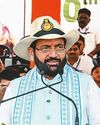
Outlook
Policing With A Human Touch Haryana's Tech-Led Transformation
From AI-enabled emergency response systems to pioneering forensic setup, from women's safety initiatives to cybercrime crackdowns, Haryana is setting new standards in technology-driven governance and public safety
3 mins
December 01, 2025
Listen
Translate
Change font size

